We are celebrating MATHS WEEK: October 12th-16th 2020
Here are some tips on having fun with maths at home too! (+ downloads available below!)
1. Laundry
Doing the laundry is one of those tasks that nobody really loves doing, am I right? You may already be outsourcing some of the tasks to your children by getting them to match socks and collect and count clothes pegs. Here are some other ways you can teach the curriculum while doing the laundry.
Sorting and grouping is the task of identifying a common feature to form a group. This basic maths skill is important in learning to organise knowledge and ideas. Children need to learn to discriminate differences, to reason and analyse, and to select items to form groups. This can be practiced very easily by asking the following questions:
2. Kitchen
The kitchen can provide lots of opportunities for rich mathematical experiences – as a parent you may be already sharing these with your children and not even knowing you are teaching the maths curriculum. Young children can help by setting the table, organising the shelves, cooking, and baking and apply the basic maths skills of sorting, grouping, matching, and counting. Develop their maths skills by asking the following when you are setting the table
SORTING:
3. Shopping
Although children cannot accompany adults when shopping now, there are still lots of opportunities to share meaningful maths experiences with your child when completing this household chore. There are so many bargains to be had online now; involve your teenagers with the online shopping and discuss any saving opportunities. Young primary school children can continue to practice the maths concepts of sorting, matching, and counting. With the older students, it does not matter if you are unfamiliar with the methods they are using or if a child does not reach an end point, getting stuck is to be expected. Try figure out the problem together, facilitate a discussion about what they have done so far and where they aim to end up. Communicating mathematically in this way offers a very worthwhile learning experience. Talk to your child about having a growth mindset, praise hard work and resilience instead, instead of speed and intelligence.
Before leaving for the shop:
When at the shop – take photos of any special offers, try buy items that have a certain percentage free and hold on to the receipt after paying for the items.
When home:
Of course, not all maths has to be applied to jobs around the house – recreational maths is maths that is carried out for entertainment and often involves mathematical puzzles and games.
See measurement activity here
This activity will see secondary school children using problem solving strategies to create a scaled map of their garden. They will practice the skills that they have learned in the classroom and apply them to their world. They will observe their surroundings and then select and use appropriate techniques to complete this task. Children will make estimates, then accurately measure the dimensions of the garden, and present the project as a scaled map inclusive of symbols.
Children should be prompted to ask questions and make assumptions – qualities of a great mathematician!
“By asking What do you notice? What do you wonder? we give students opportunities to see problems in big picture ways, and discover multiple strategies for tackling a problem. Self-confidence, reflective skills, and engagement soar, and students discover that the goal is not to be “over and done,” but to realize there are many different ways to approach problems.” Explains Anthony Persico from Mash up Maths
During problem solving, children should be encouraged to communicate their mathematics and explain their reasoning in written and verbal form.
Making progressBy planting these seeds of mathematical thinking from an early age means that your child will be more likely to grow to love and appreciate the subject.
Negative attitudes towards maths can seriously impair progress and these activities are a fun, no-pressure way of promoting a positive attitude towards the subject (and keep young people occupied). Wherever possible, try to draw on the children’s interests. For example, if they love to play with Lego then be sure to try incorporate Lego into the maths learning whenever possible (measure, geometry, statistics, etc)
In summary:
Doing the laundry is one of those tasks that nobody really loves doing, am I right? You may already be outsourcing some of the tasks to your children by getting them to match socks and collect and count clothes pegs. Here are some other ways you can teach the curriculum while doing the laundry.
Sorting and grouping is the task of identifying a common feature to form a group. This basic maths skill is important in learning to organise knowledge and ideas. Children need to learn to discriminate differences, to reason and analyse, and to select items to form groups. This can be practiced very easily by asking the following questions:
- Can you make a pile of all the towels?
- Can you make a pile for colours, a different pile for dark colours and another pile for the whites?
- Match pairs of socks. (identical objects)
- Match pyjama tops and bottoms. (related objects)
- Do we have more black socks or more white socks?
- Who do you think has the most t-shirts in the washing basket – you or me? Let us check and see!
- Is this white towel the same as that white towel? (Bigger, smaller, longer, shorter)
- Build another pile of socks with the same number of socks as this one
- How many towels are on the line?
- How many pairs of socks have we matched? (push them aside while counting)
- How many clothes pegs do we have?
- How many clothes pegs do you think we will need to hang three towels?
2. Kitchen
The kitchen can provide lots of opportunities for rich mathematical experiences – as a parent you may be already sharing these with your children and not even knowing you are teaching the maths curriculum. Young children can help by setting the table, organising the shelves, cooking, and baking and apply the basic maths skills of sorting, grouping, matching, and counting. Develop their maths skills by asking the following when you are setting the table
SORTING:
- Ask your child to sort the place mats, depending on colour or size
- Give all the cutlery to the child and ask them to separate them into different groups – forks, spoons, knives etc. and get them to talk about their arrangements
- Get them to gather all the plastic plates together
- Match this fork with another fork exactly like it
- Match this napkin to one exactly like it
- Each person at the table should have a knife and a fork – will you place one fork and one knife at each setting
- Match each cup to a saucer
- Pop an unlit nightlight into each candle holder
- Every chair should have one cushion on it, can you find a chair with more than one cushion?
- Can you find a chair with less than one cushion?
- Everyone has ice in their glass – can you spot someone who has more ice than you?
- What is different between Dad’s slice of bread and yours?
- Investigate the different sizes of serving bowls on the table
- Demonstrate the portion sizes: big portion for parents, medium portion for children, small portion for baby
- How many people will be sitting at the table tonight?
- How many cups are on the table? When you are placing cups on the table count them as you do so.
- How many more do we need?
- Ask the child to give two slices of bread to everyone
- Count out enough spoons for everyone for dessert
- Estimate how many cookies are in the jar (less than 20), count them and check.
3. Shopping
Although children cannot accompany adults when shopping now, there are still lots of opportunities to share meaningful maths experiences with your child when completing this household chore. There are so many bargains to be had online now; involve your teenagers with the online shopping and discuss any saving opportunities. Young primary school children can continue to practice the maths concepts of sorting, matching, and counting. With the older students, it does not matter if you are unfamiliar with the methods they are using or if a child does not reach an end point, getting stuck is to be expected. Try figure out the problem together, facilitate a discussion about what they have done so far and where they aim to end up. Communicating mathematically in this way offers a very worthwhile learning experience. Talk to your child about having a growth mindset, praise hard work and resilience instead, instead of speed and intelligence.
Before leaving for the shop:
- Sort the cupboards by matching similar objects and identifying anything low in stock or excess stock.
- Group all the sauces together and arrange them in order of size, colour, shape
- Compare items according to length, width, height, weight, quantity, thickness, or size
- Classify the shopping list in terms of Dairy, Meat, Sweets and goodies, fruit, veg – discuss where each item should go, (add items to clearly defined set)
- Ask children to count how many items are on the veg list – compare that to the goodies list – discuss
- For older students encourage them to work with budgets. Give them a list of items that the house needs and a budget to work with – encourage research through catalogues and through internet searches.
When at the shop – take photos of any special offers, try buy items that have a certain percentage free and hold on to the receipt after paying for the items.
When home:
- Ask younger children to count how many shopping bags you have
- Ask them to help sort the shopping into piles for fridge, cupboard, bathroom.
- Estimate how much the shop came to
- Give older students the receipt with the totals removed – ask them to estimate the total cost by rounding to the nearest euro or pound. Show actual total and calculate percentage difference x 100
- With the items that came with a certain percentage free – ask the child to calculate how much of the product is free?
- Show picture of deals on offer in the shop. What does 3 for the price of 2 mean? what is 50% extra free? Is it better to buy a big jar or two small jars?
- Show a receipt from the petrol station – if petrol is €1.42 per litre and you spent €30 how many litres did get? If a full tank takes 65 litres how much would that cost? If you travel 17 km to shops at an average of 60km per hour – how long will it take you to travel to shops?
Of course, not all maths has to be applied to jobs around the house – recreational maths is maths that is carried out for entertainment and often involves mathematical puzzles and games.
- Provide toys that encourage your child to explore maths concepts: card games, puzzles, dominoes, board games with dice, blocks, tangrams. Many of the maths week daily activities involve coins, cards and dice.
- Play games of make-believe that involve maths ideas. For example, playing shop involves counting items and money. Playing doctors and nurses encourages taking temperature and measuring height and weight. Playing post office provides opportunities to organise envelopes, boxes, and tubs by size.
- Incorporate arts and crafts into the maths lesson. Check out the maths week’s daily activities for loads of fun maths activities that your family can do with everyday things that you might have at home…. and a little imagination.
See measurement activity here
This activity will see secondary school children using problem solving strategies to create a scaled map of their garden. They will practice the skills that they have learned in the classroom and apply them to their world. They will observe their surroundings and then select and use appropriate techniques to complete this task. Children will make estimates, then accurately measure the dimensions of the garden, and present the project as a scaled map inclusive of symbols.
Children should be prompted to ask questions and make assumptions – qualities of a great mathematician!
“By asking What do you notice? What do you wonder? we give students opportunities to see problems in big picture ways, and discover multiple strategies for tackling a problem. Self-confidence, reflective skills, and engagement soar, and students discover that the goal is not to be “over and done,” but to realize there are many different ways to approach problems.” Explains Anthony Persico from Mash up Maths
During problem solving, children should be encouraged to communicate their mathematics and explain their reasoning in written and verbal form.
Making progressBy planting these seeds of mathematical thinking from an early age means that your child will be more likely to grow to love and appreciate the subject.
Negative attitudes towards maths can seriously impair progress and these activities are a fun, no-pressure way of promoting a positive attitude towards the subject (and keep young people occupied). Wherever possible, try to draw on the children’s interests. For example, if they love to play with Lego then be sure to try incorporate Lego into the maths learning whenever possible (measure, geometry, statistics, etc)
In summary:
- Be positive about maths, even when you are finding it difficult. As a parent you are the most important influence on students. Maths can be challenging but that is why people love it. Encourage a growth mindset (link) and reward effort and resilience rather than speed and intelligence.
- Show your children that maths is all round, make maths part of your everyday lives. Encourage curiosity and do not worry about not knowing the material yourself – share the struggle with your child, work through it together. Getting over the struggle is where the magic happens.
- Make maths fun! Play games that involve numbers and calculations and where possible draw on your child’s interests.
|
| ||||||
Download Fun Maths Games and Activities
We have put together lots of exciting activities for the pupils to enjoy in school and below are some fun challenges for all the family.
|
| ||||||||||||
Scratch Challenges
Why not try out these Scratch Challenges? Improve your skills while having fun!
|
| ||||||||||||
maths trails
Download and print the below maths trails. Have fun completing them.
|
| ||||||||||||
|
| ||||||||||||
|
| ||||||||||||||||||||||||
HERE ARE SOME ACTIVITIES FOR ANY BUDDING ENGINEERS!
STEM - A Parent's guide to STEM
https://www.schooldays.ie/articles/A-Parents-Guide-to-Science,-Technology,-Engineering-and-Maths
Robot workshop
The students in 5th and 6th class thoroughly enjoyed the Robot Workshop in Ardee library.
The XX Factor in dkit
As part of Engineer's Week, the students from 3rd to 6th class attended the XX Factor Show in DKIT. This show introduced the children to six amazing scientists and engineers. The students learned about their ground-breaking discoveries, the work they did and met the modern day scientists they inspired along the way.
From sparks, light and gravity, to musical moments, smoke rings and crazy paper chains, the show gave our budding engineers and scientists a glimpse of the life changing impacts that a career in these fields can have!
From sparks, light and gravity, to musical moments, smoke rings and crazy paper chains, the show gave our budding engineers and scientists a glimpse of the life changing impacts that a career in these fields can have!
Engineer's Week!
This week is Engineer's Week.
All classes have been discussing the various types of engineers and the ways in which they help us to solve problems.
Thank you to our special engineer guest who visited each class and presented some fascinating engineering material!
We also made bridges and completed an egg drop challenge - designing and testing our structures.
Here are some photos of all the fun we have had this week!
All classes have been discussing the various types of engineers and the ways in which they help us to solve problems.
Thank you to our special engineer guest who visited each class and presented some fascinating engineering material!
We also made bridges and completed an egg drop challenge - designing and testing our structures.
Here are some photos of all the fun we have had this week!
Science Blast!
|
|
Congratulations to the boys and girls in 3rd and 4th class who participated in Science Blast this year. They travelled to Belfast to exhibit their experiment entitled 'Does Music Affect our Heart Rate?' and received a plaque for all their hard work. They had a great day out and what a wonderful experience. Well done to all involved!
|
Maths Week
We had a great time learning during Maths Week!
Engineers Week
We have been very busy the last few weeks making chairs. Have a look at how we got on. Well done to the winning teams. And thanks to Brian for being our judge.
what is stem?
STEM stands for Science, Technology, Engineering and Maths. This this section you will find information and photos about what we are doing in these areas in school.
Coding in 3rd & 4th Class
3rd & 4th class had a visit today from coding expert Joan, to give us an introduction to coding. Joan showed us how to use a programme called Scratch.
We had great fun and learned lots of great information.
We had great fun and learned lots of great information.
Problem Solving
We have been very busy doing problem solving every week with Ms Flanagan. We have had great fun and look forward to more as the year goes on.
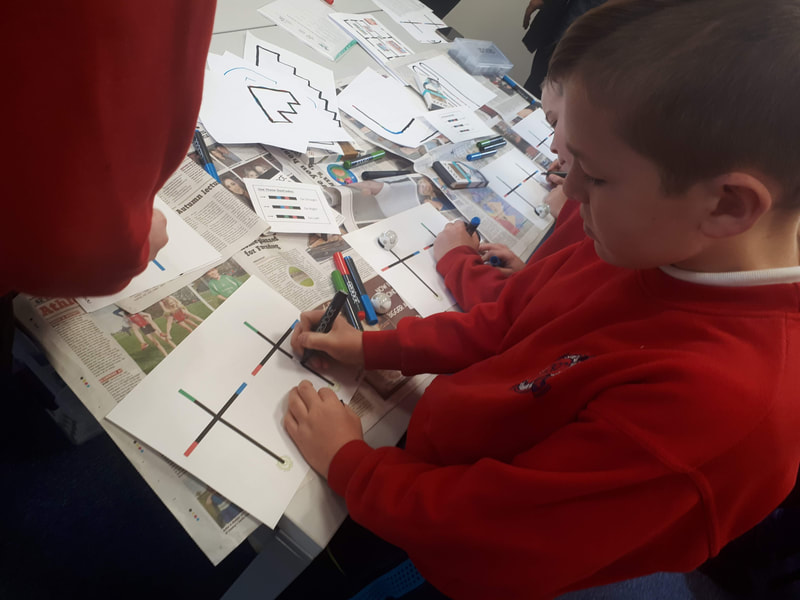
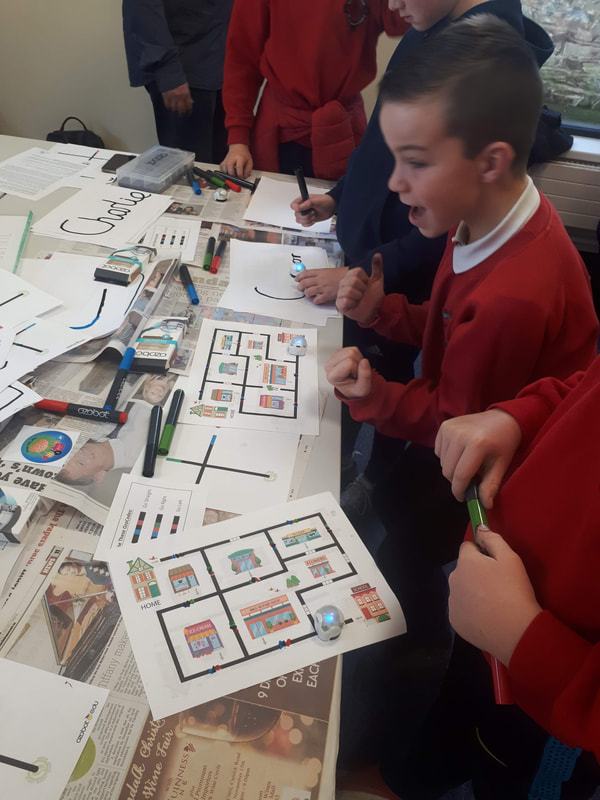
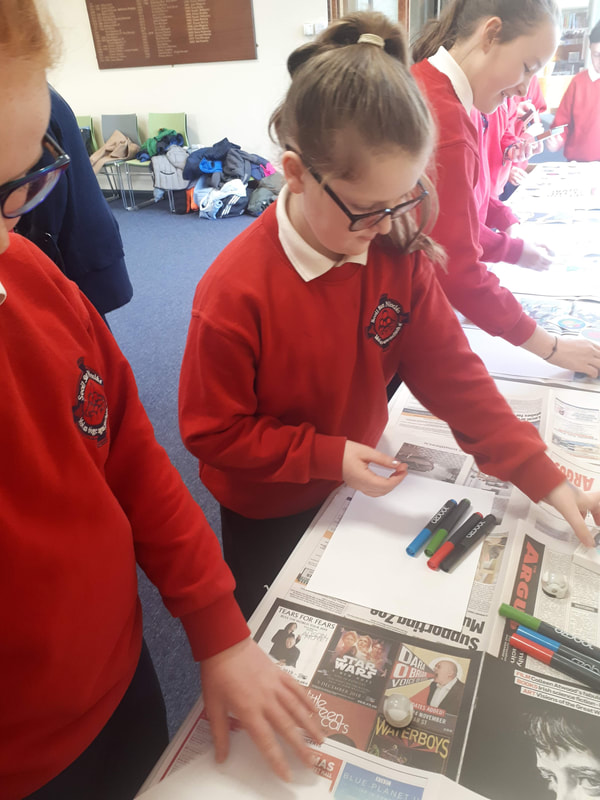
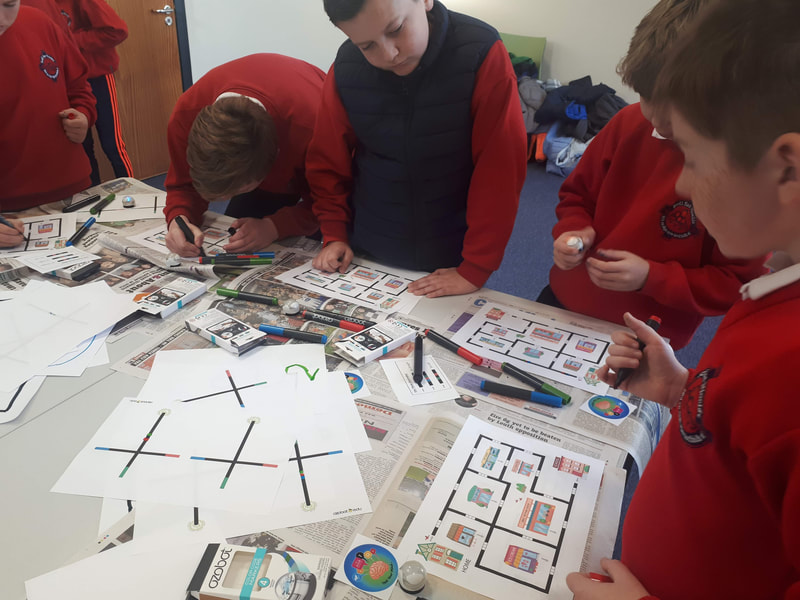
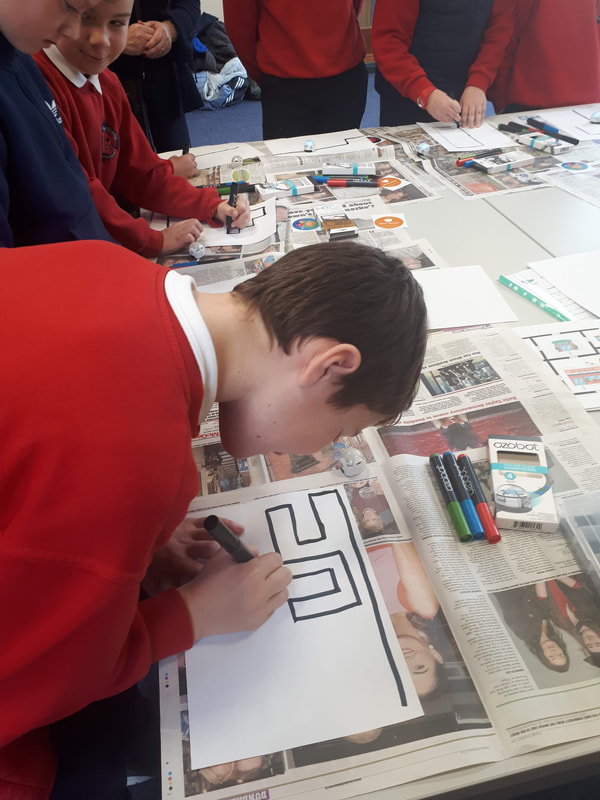
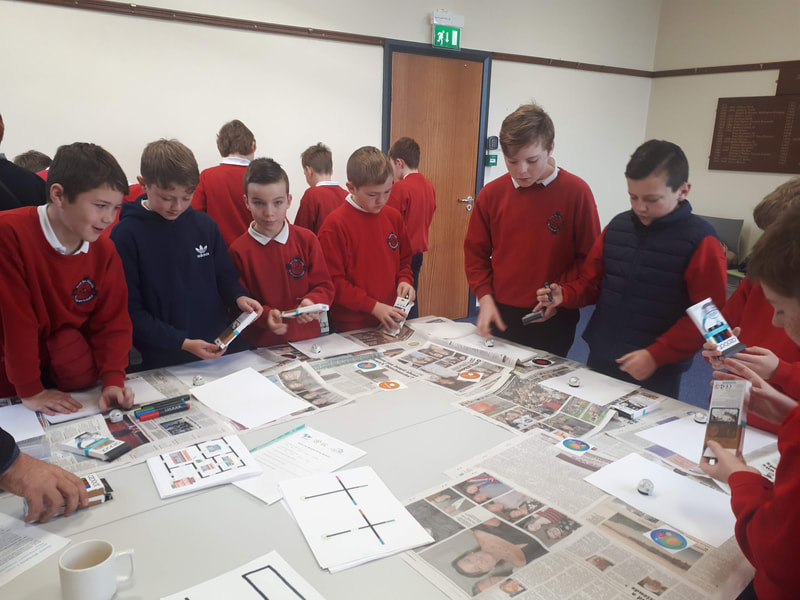
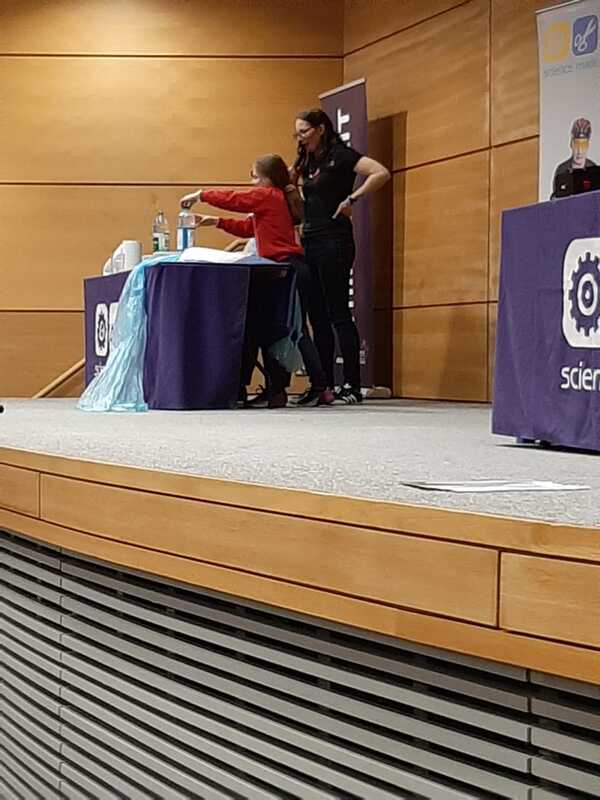
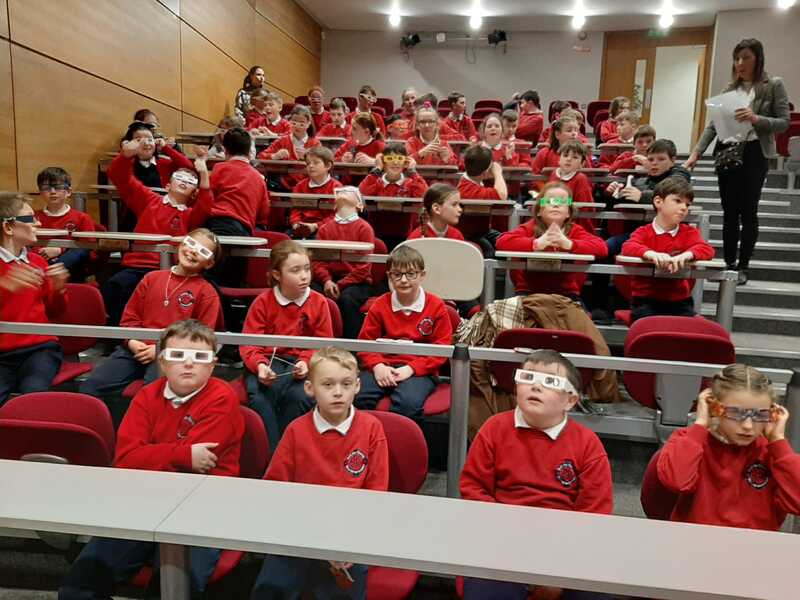
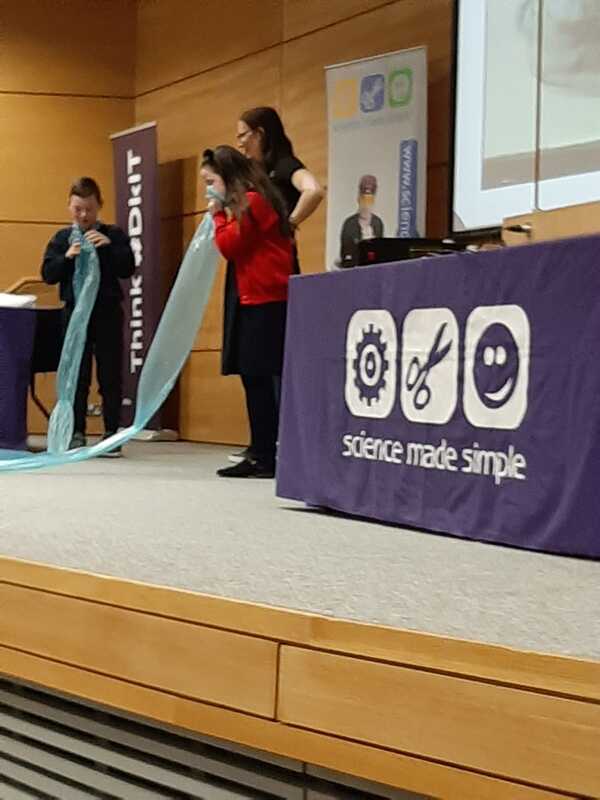

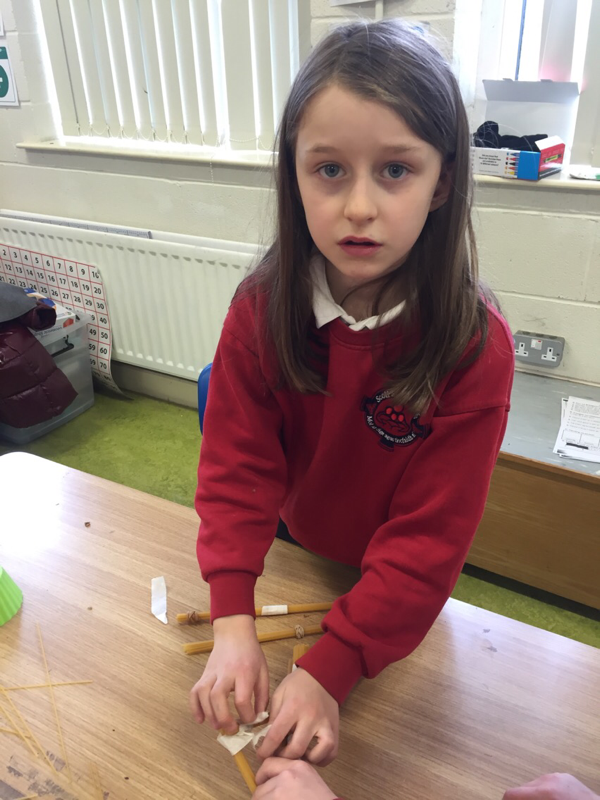
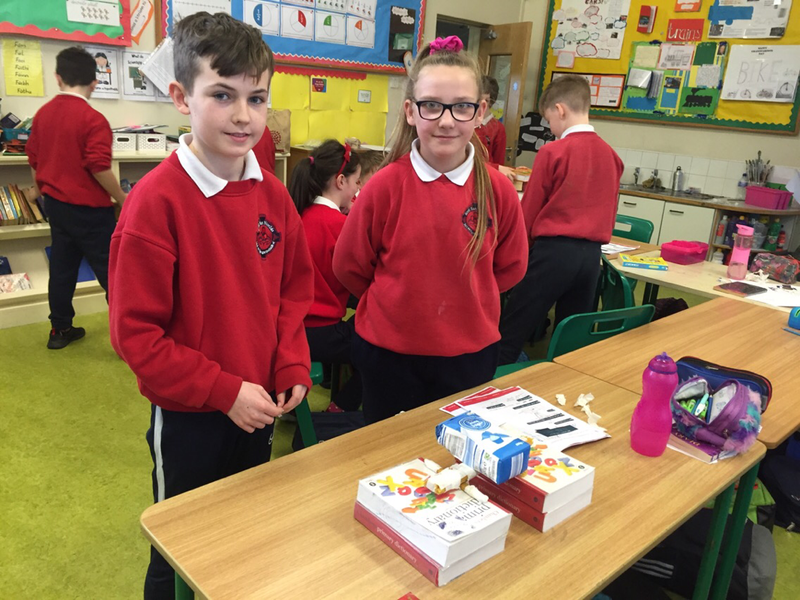
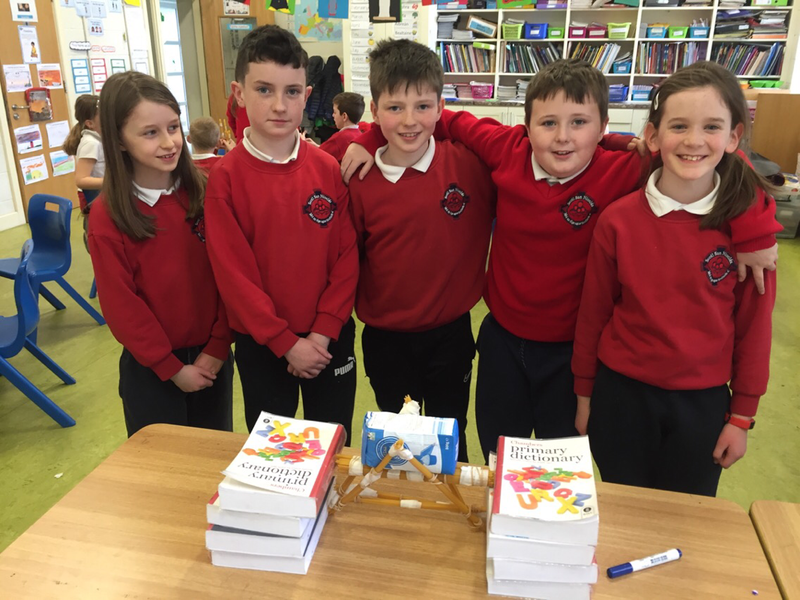
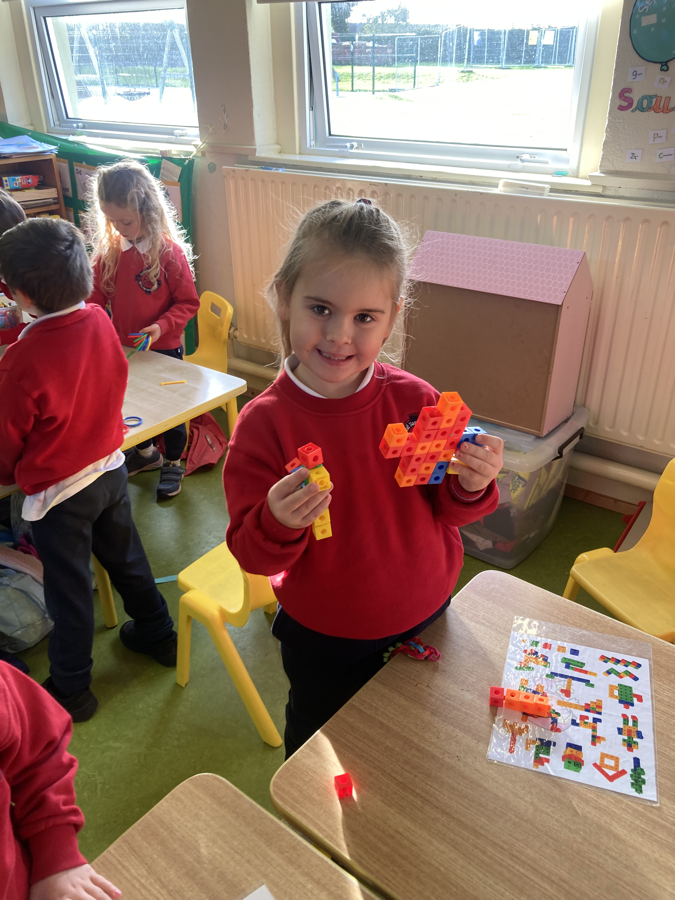
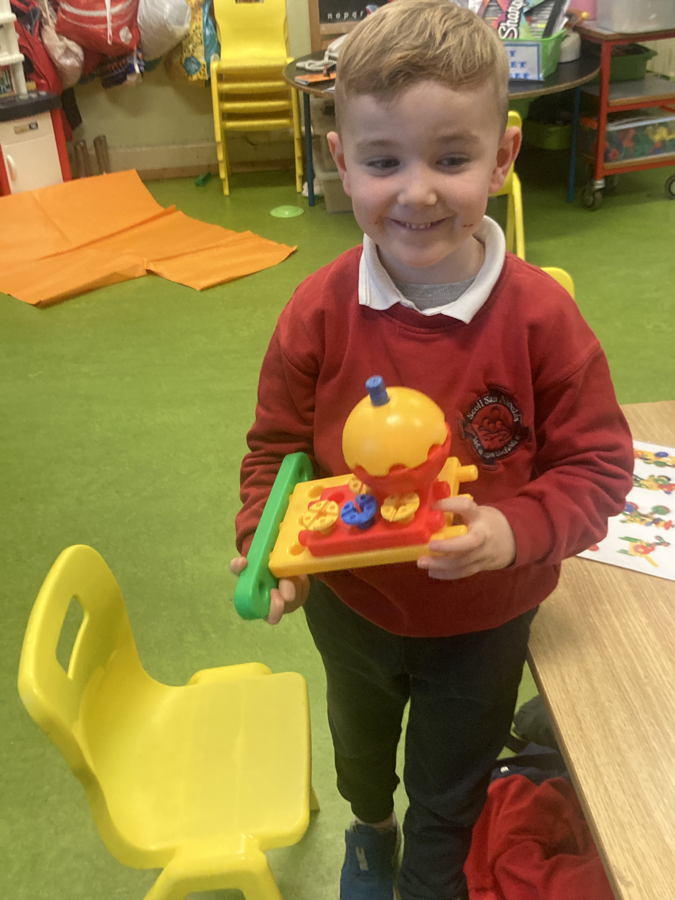
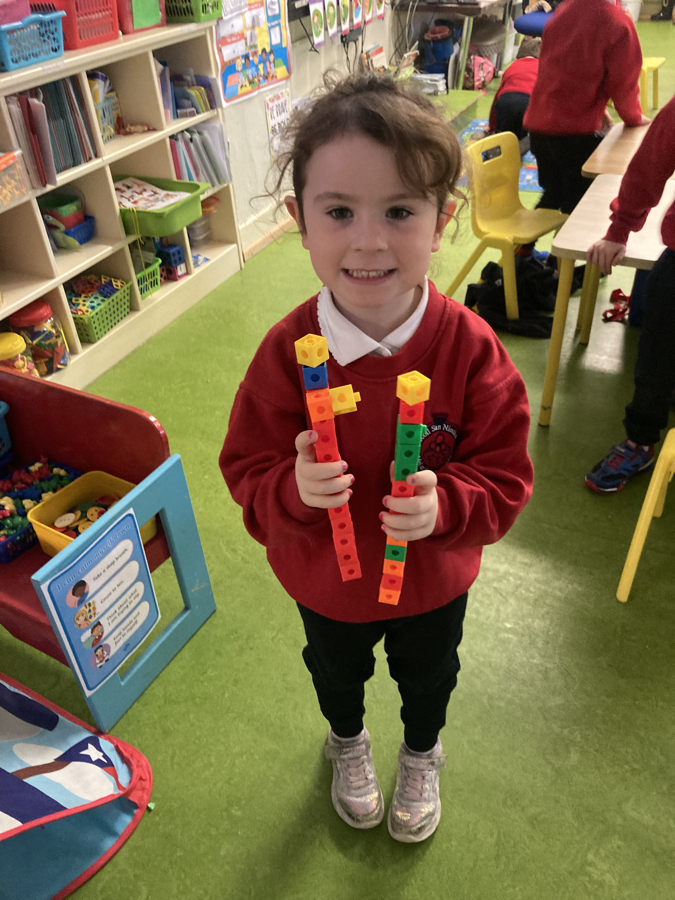
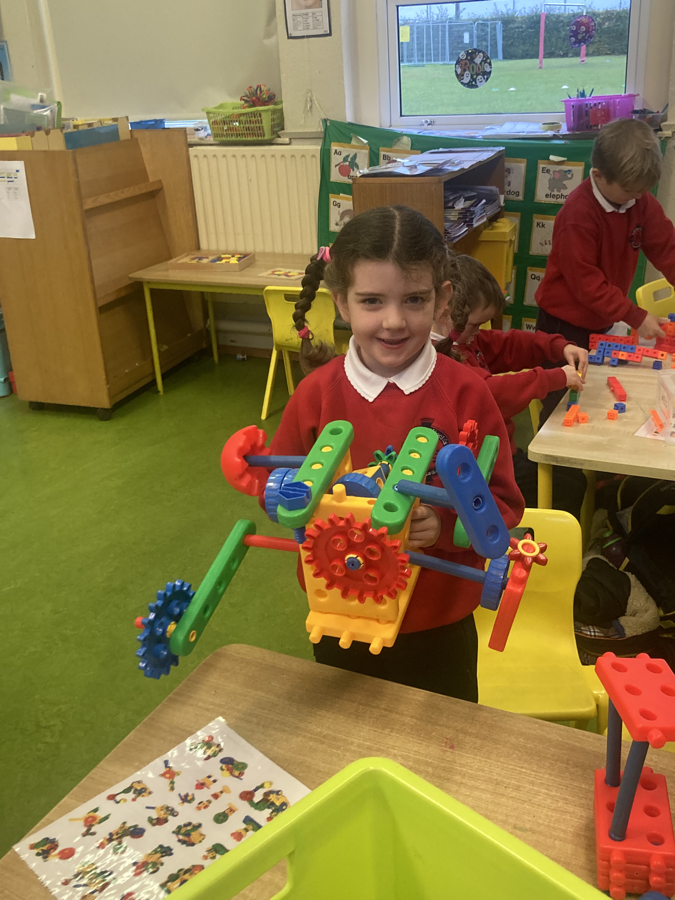

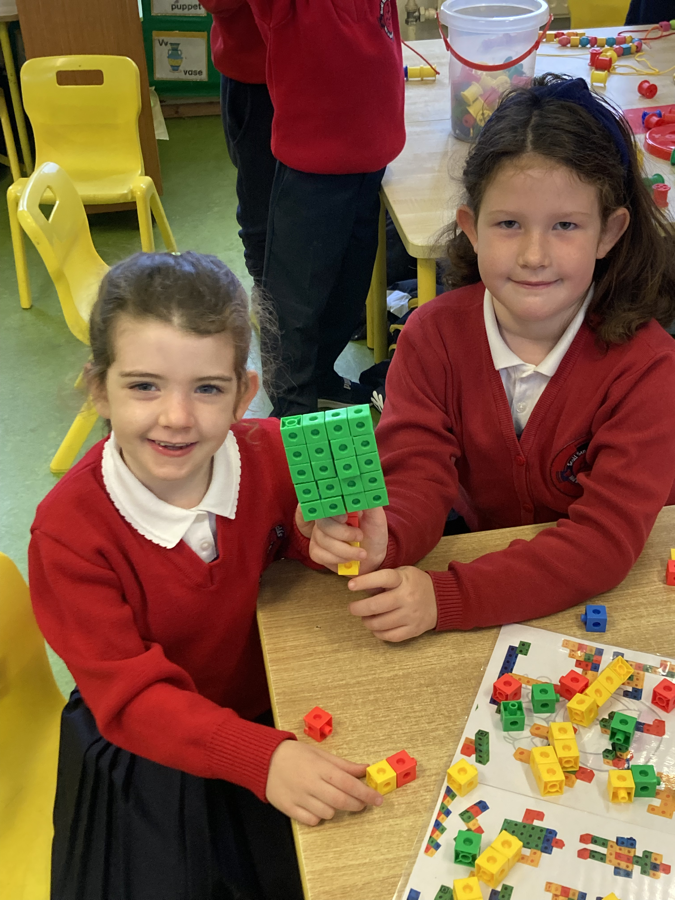
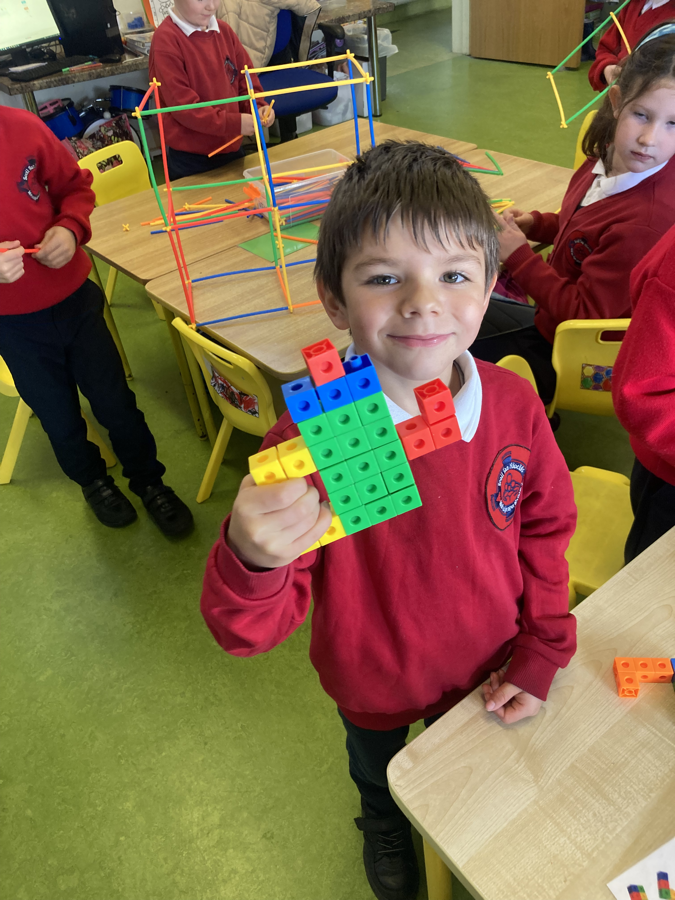
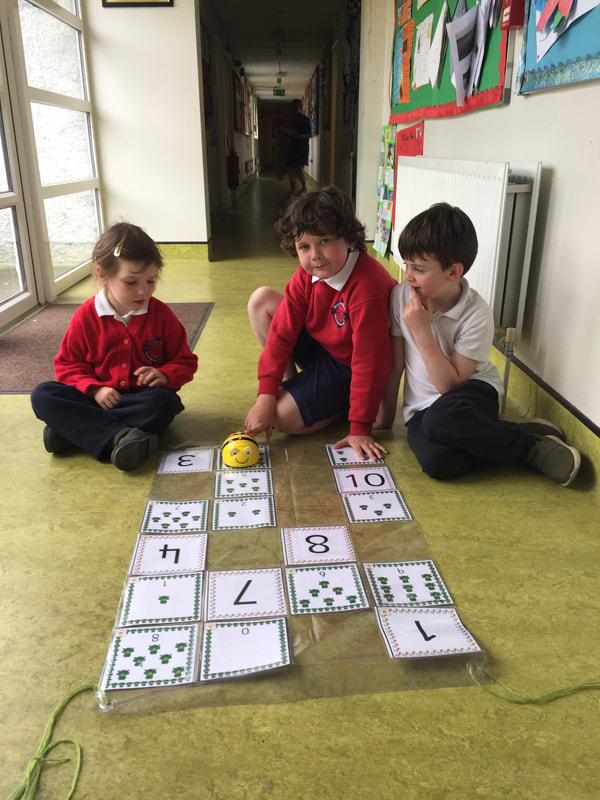
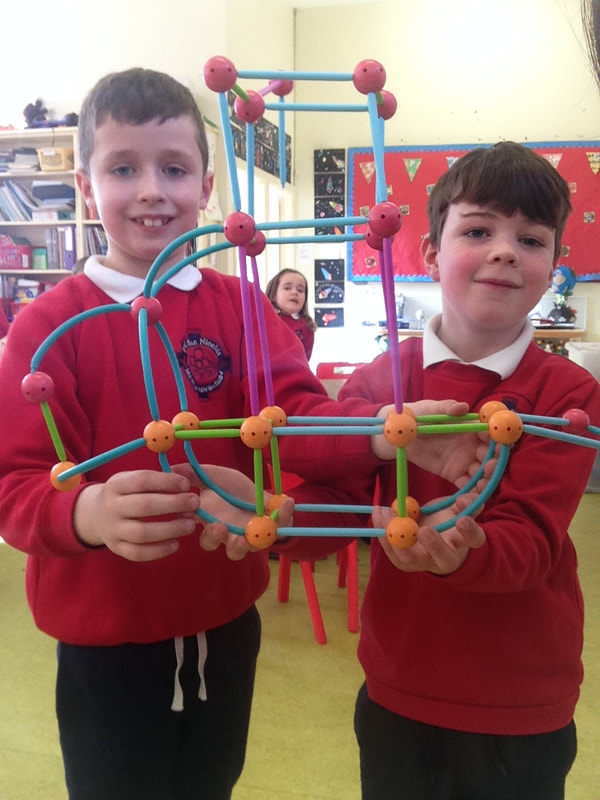
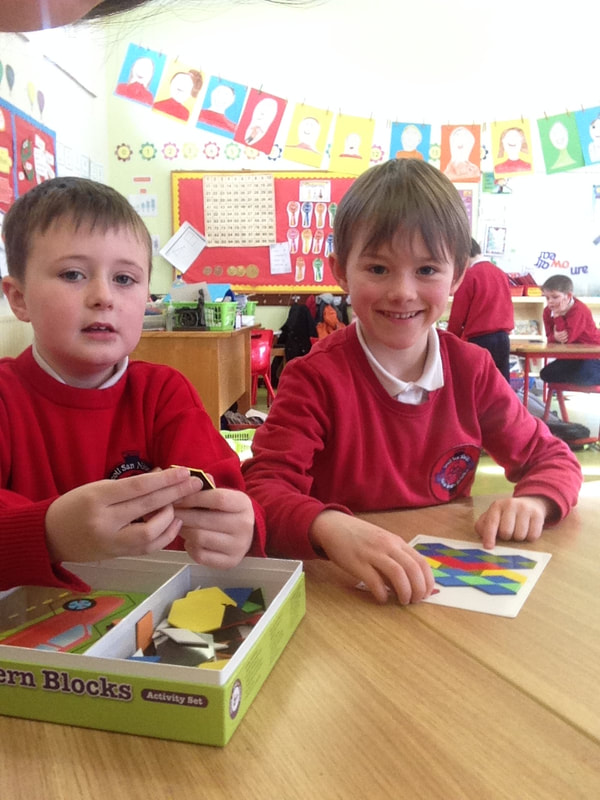
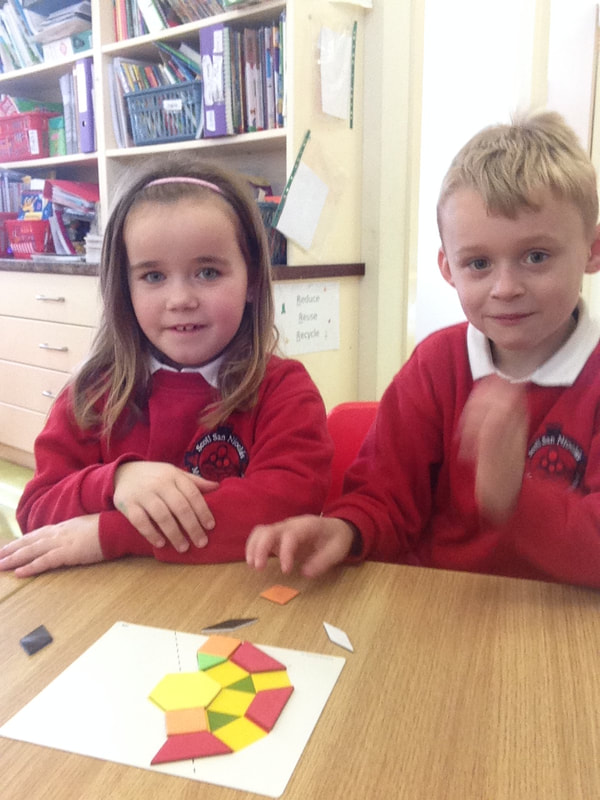
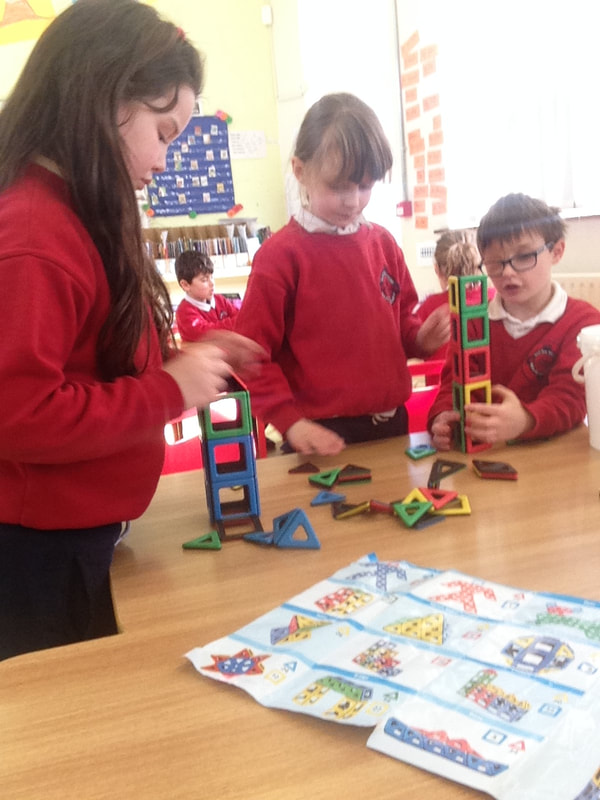
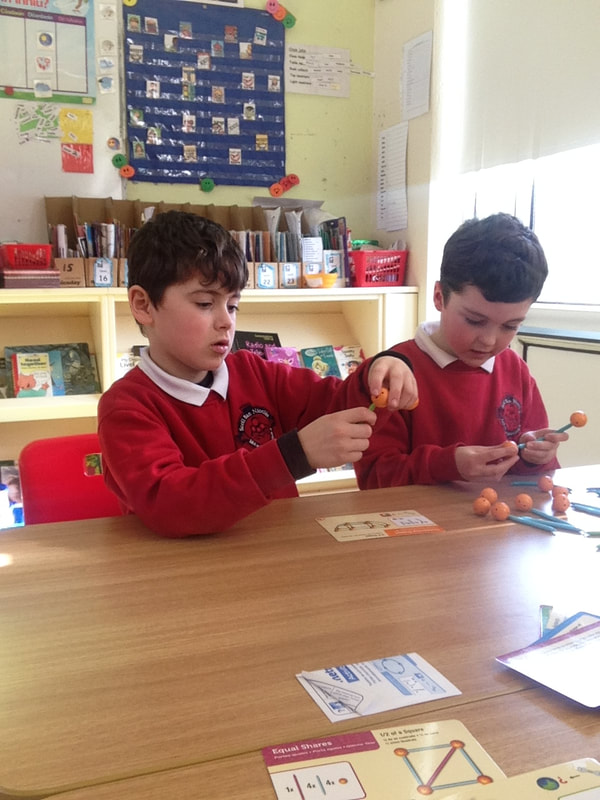
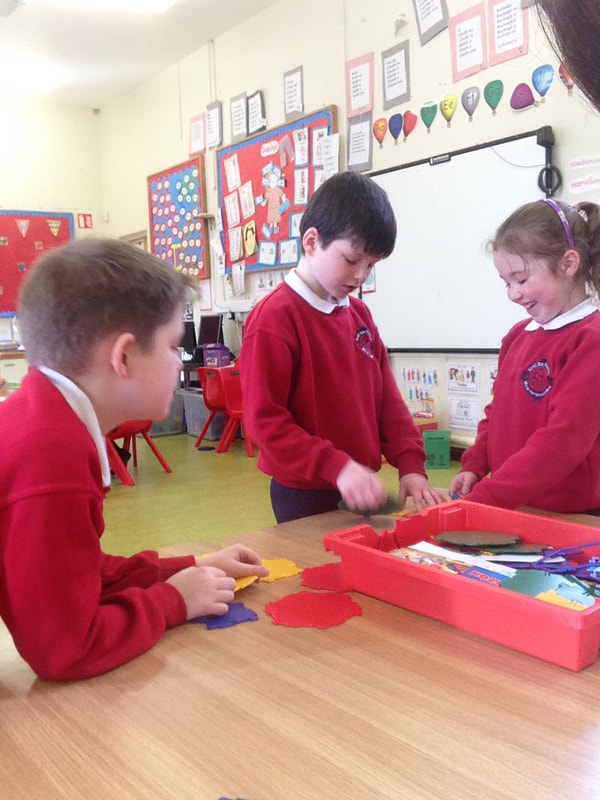
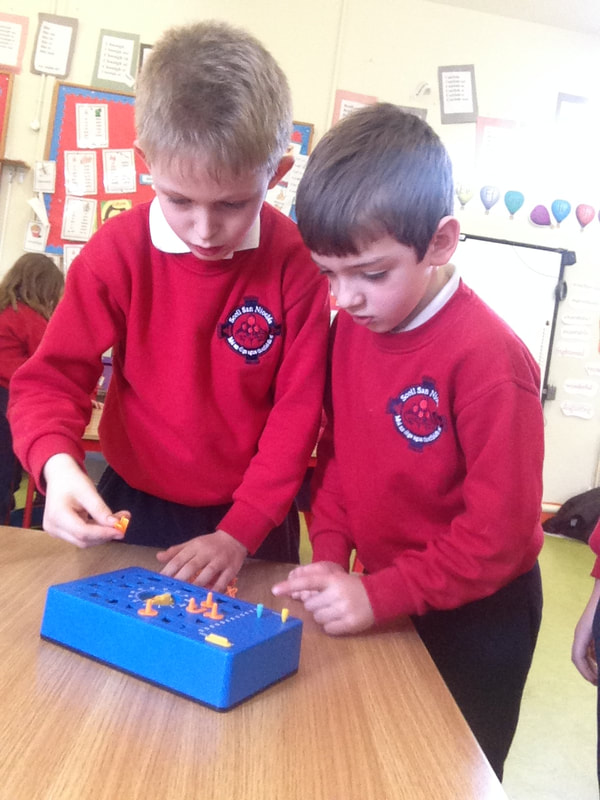
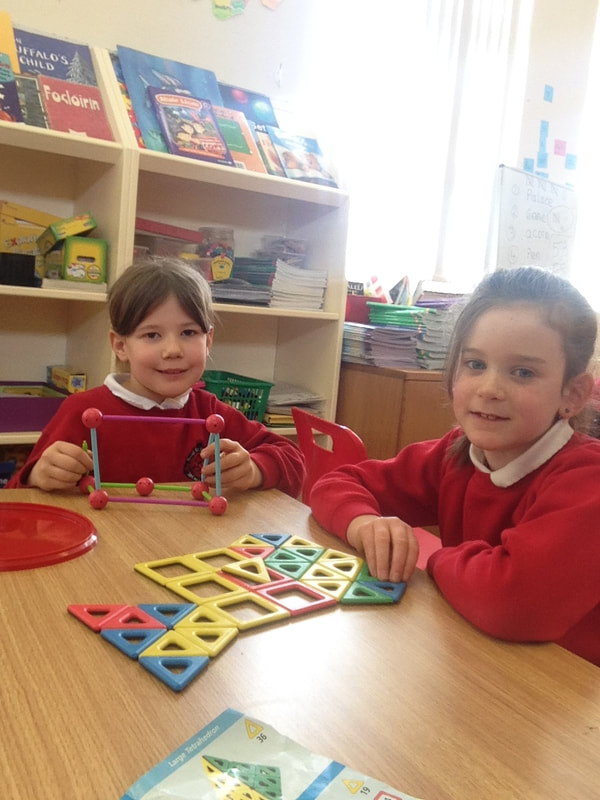
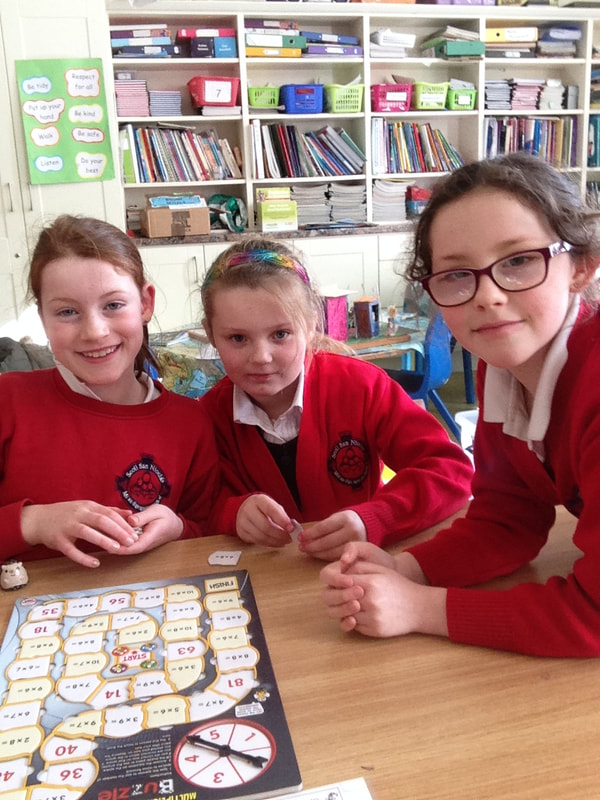
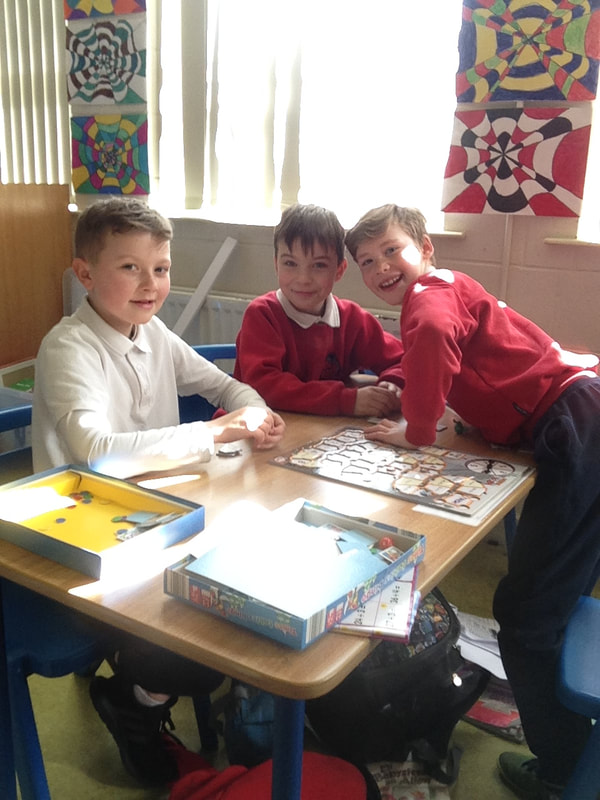
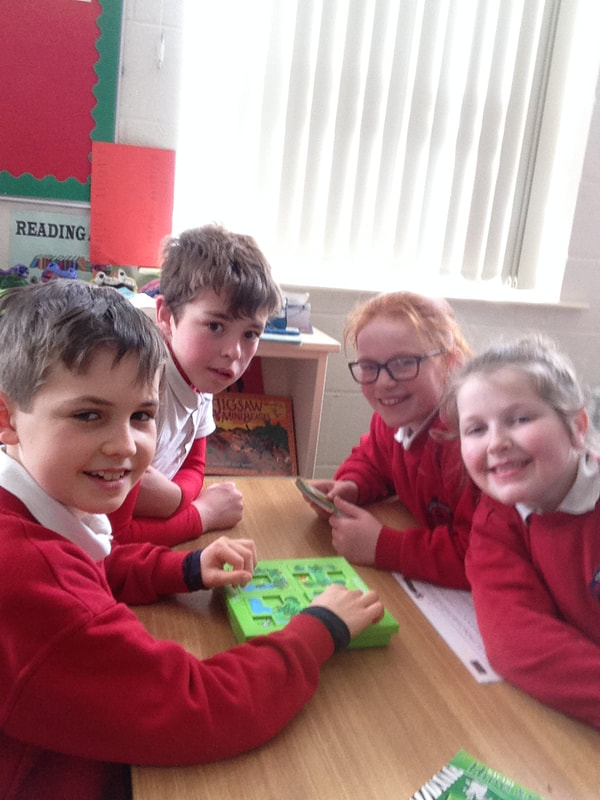
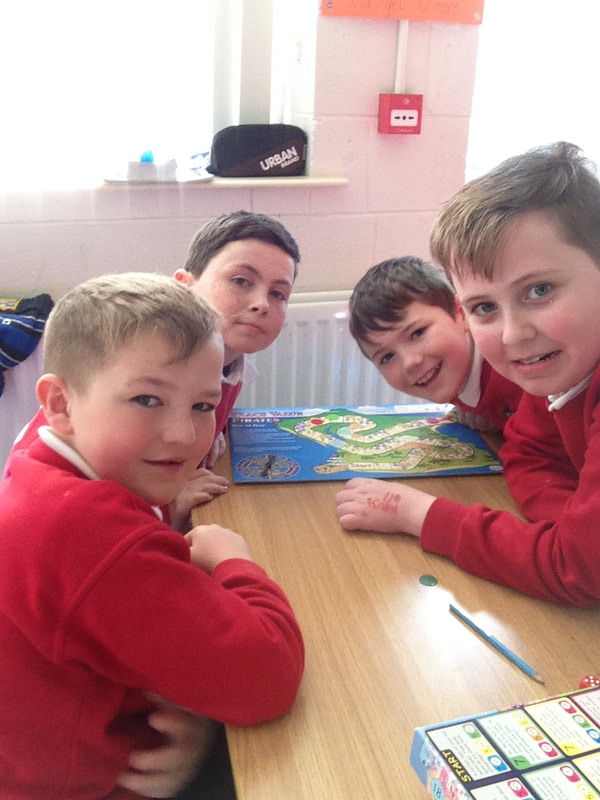
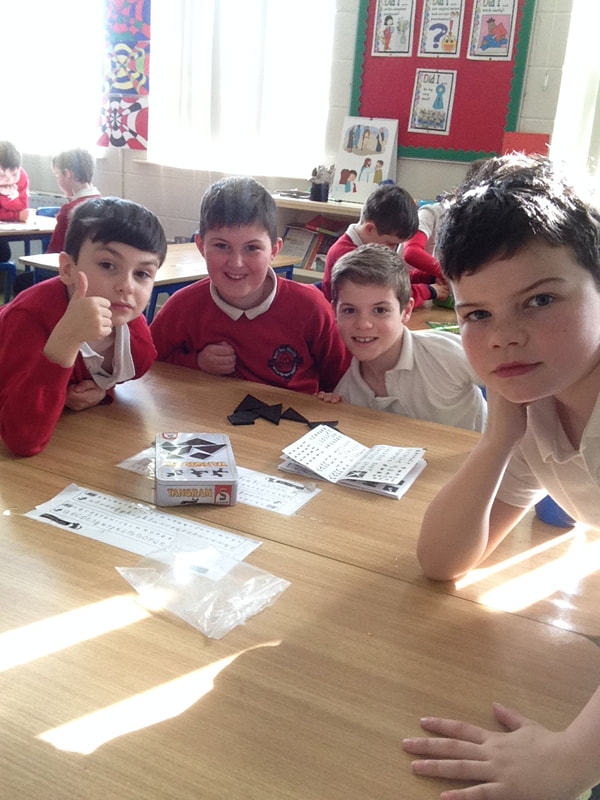
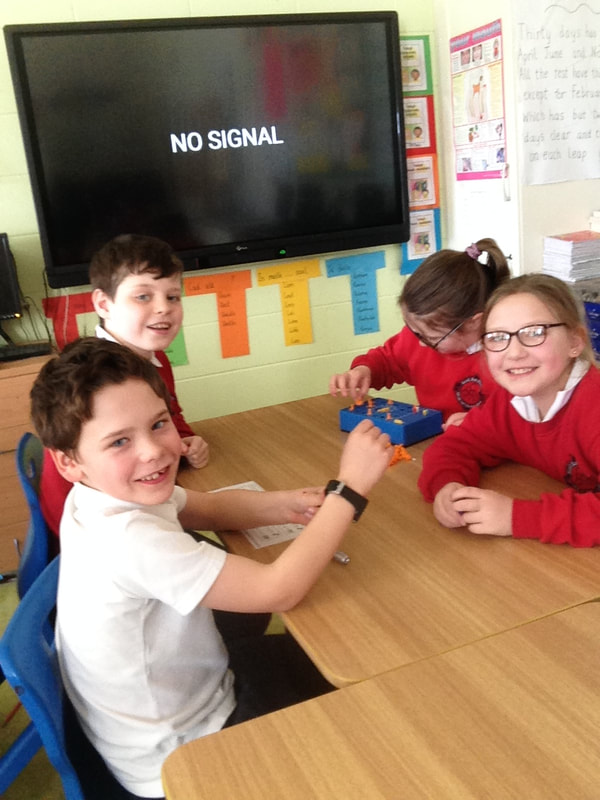
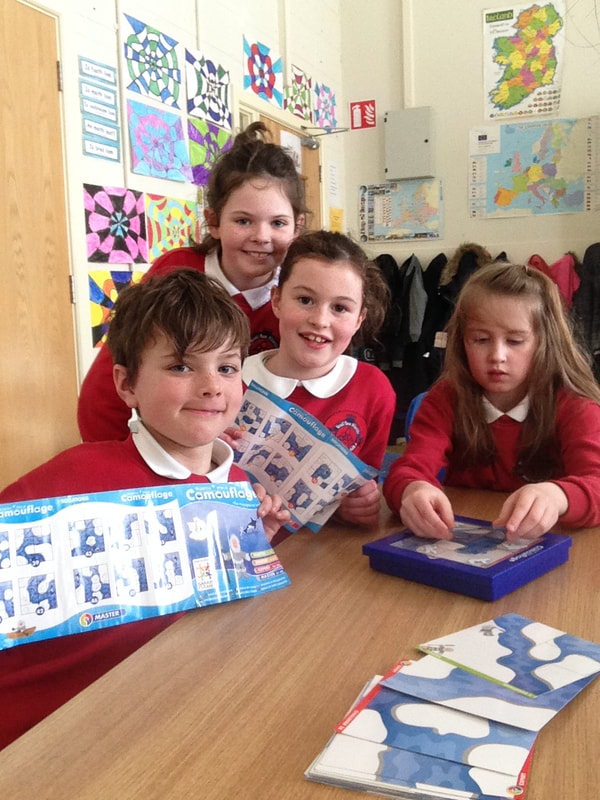
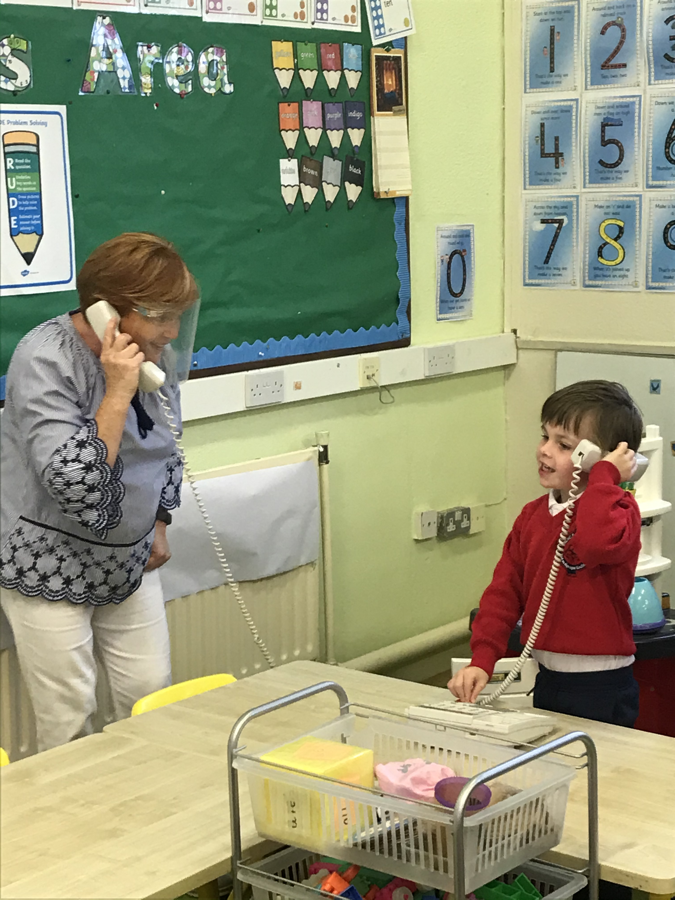
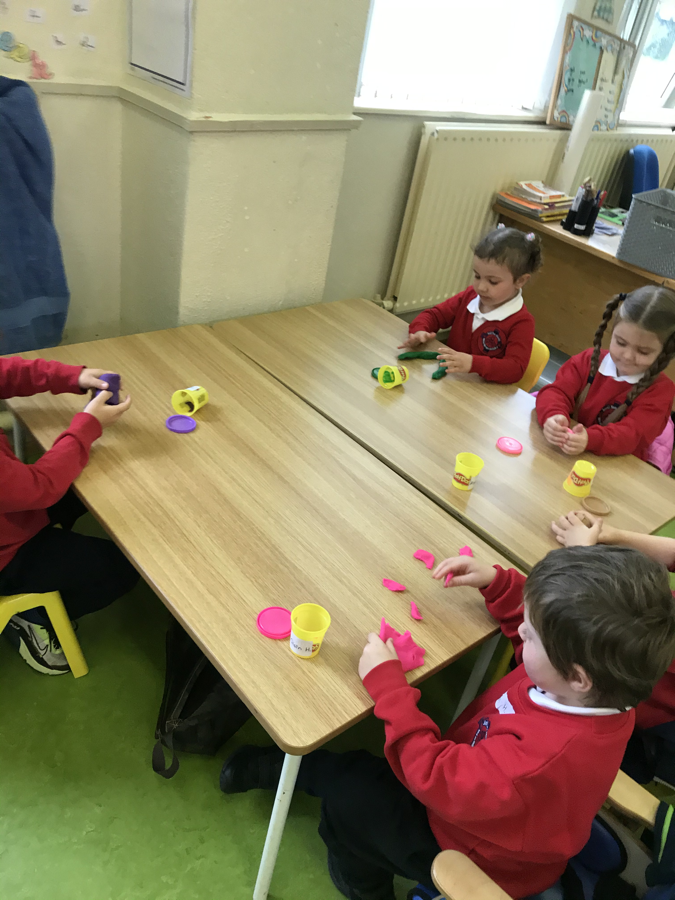
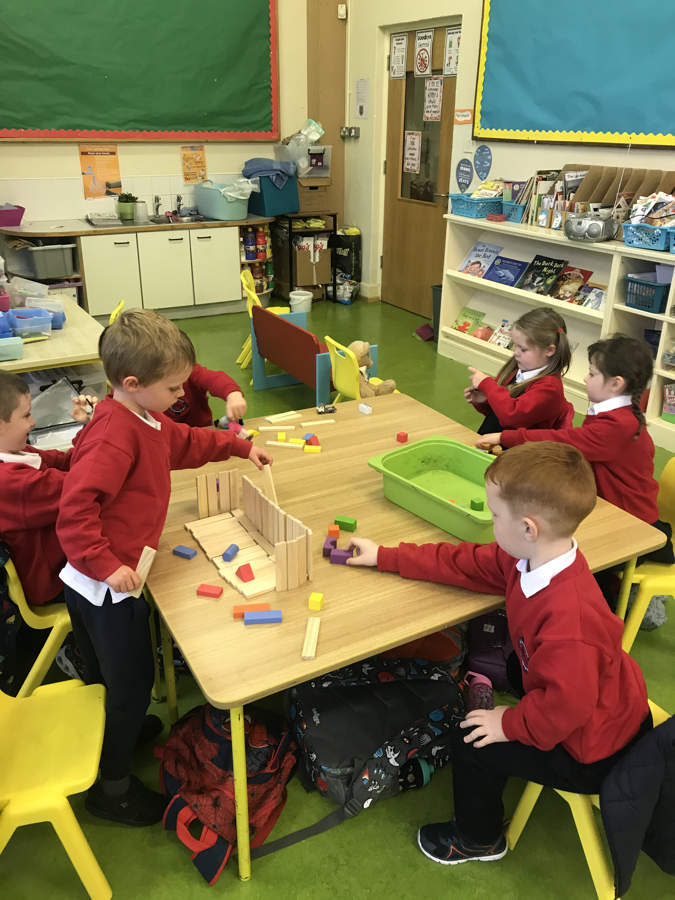
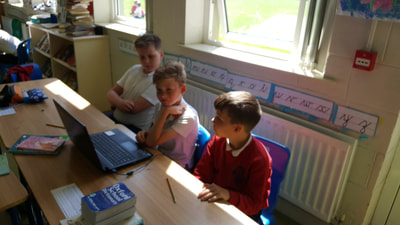
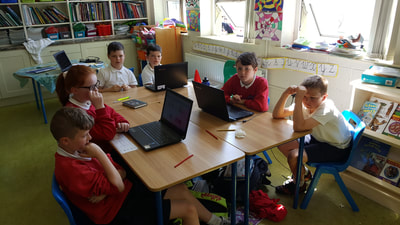

 RSS Feed
RSS Feed